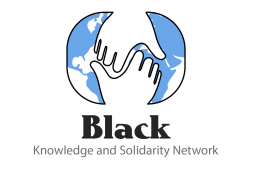Reducing HIV Vulnerabilities and Promoting Resilience among Heterosexual African, Caribbean, Black (ACB) Men in Ontario.
In this program of research, we engaged and mobilize self-identified heterosexual ACB men who are: aged 16 and over; residing in Toronto, London, Ottawa, and Windsor; and HIV-positive or HIV-negative (i.e., never diagnosed with HIV). Issues pertaining to heterosexual men and HIV were identified as a research priority by participants in an ACB research think tank.15 This priority status acknowledged an obvious gap in knowledge and understanding of issues related to ACB men’s health.
The objectives of our program of research, community engagement, capacity building and KTE in Ontario, which closely align with CIHR objectives, were to:
(1) mobilize self-identified heterosexual ACB men to address sociocultural and sociopolitical conditions that contribute to HIV related health disparities;
(2) examine social and behavioural vulnerabilities to HIV among self-identified heterosexual ACB men, including their social identities related to race, class, gender and sexualities;
(3) identify the individual and structural factors that promote resilience and reduce HIV-related risk and vulnerability among self-identified heterosexual ACB men;
(4) build individual, community, and organizational capacity and leadership to address HIV/AIDS disparities among self-identified heterosexual ACB men and ACB communities (including students, postdoctoral fellows, and engaged members within ACB communities) through research, programming, and policy; and
(5) generate, appraise and share new knowledge, and support its translation into intervention, practice, and policy locally (in Ottawa, Toronto, London and Windsor), provincially and nationally.
- The Perception of Religious Leaders on HIV and Their Role in HIV Prevention: A Case Study of African,Caribbean, and Black (ACB) Communities in Windsor, Ontario.
- HIV Exposure through Heterosexual Contacts: Analysis of Demographic, Behavioral and Structural Risk Factors among Black Men in Ottawa and Windsor, Ontario.
- Access to healthcare services among heterosexual Blackmen in Ontario, Canada
- HIV vulnerability and sexual risk among African youth in Windsor, Canada
- Sexual Debut Among Heterosexual Men of African and Caribbean Descent: Are the Youth Initiating Sex Earlier than the Older Generation?
- Correlates of Casual Sex Amidst Vulnerability to HIV Among ACB Heterosexual Men in Ottawa and Windsor, Ontario Canada
- Sexuality and Sexual Agency Among Heterosexual Black Men in Toronto: Tradition, Contradiction, and Emergent Possibilities in the Context of HIV and Healthåå
